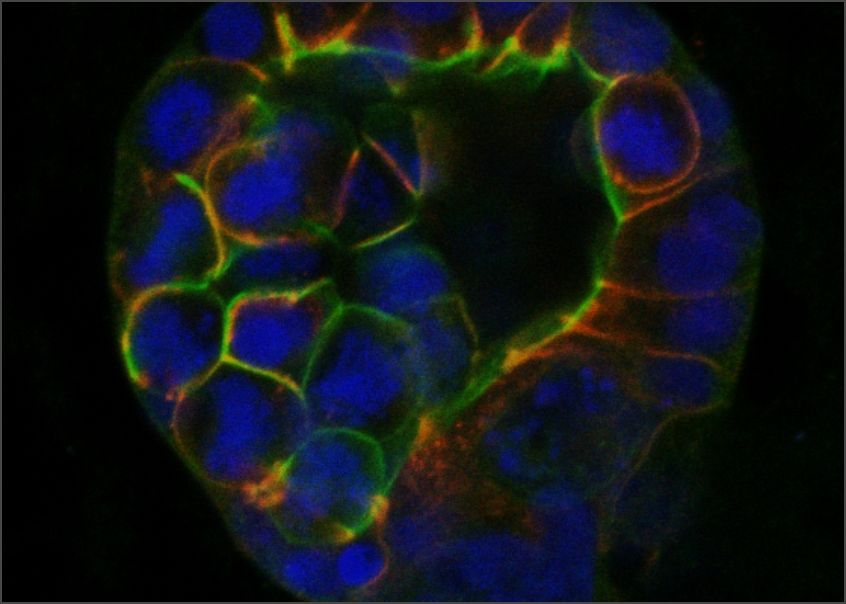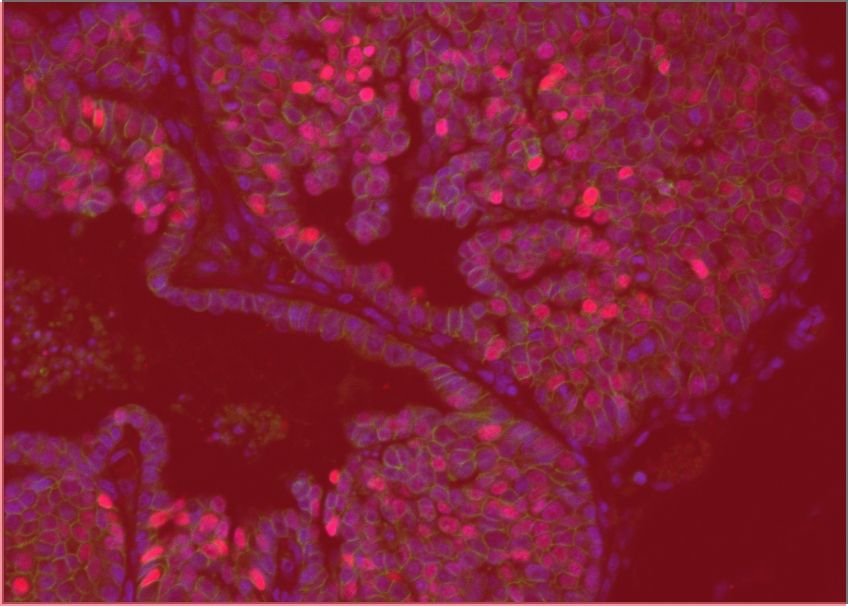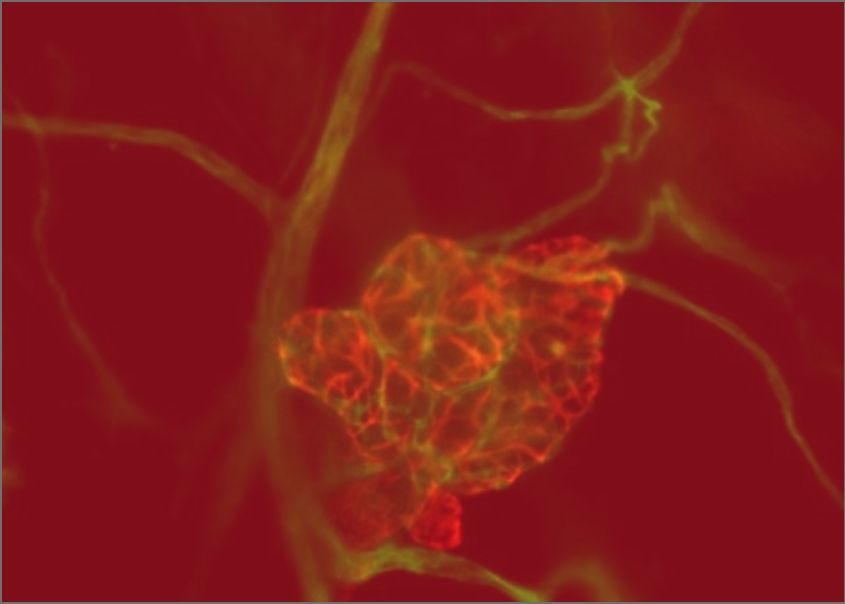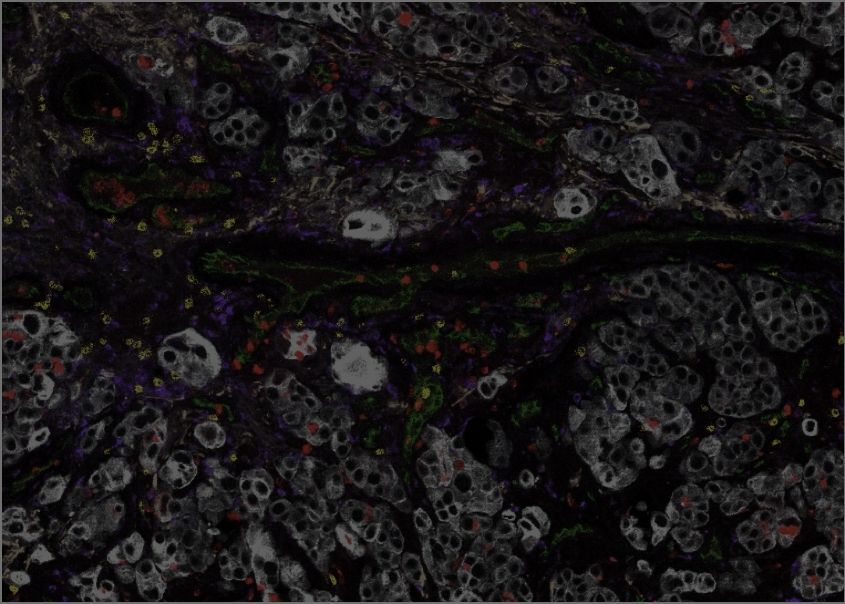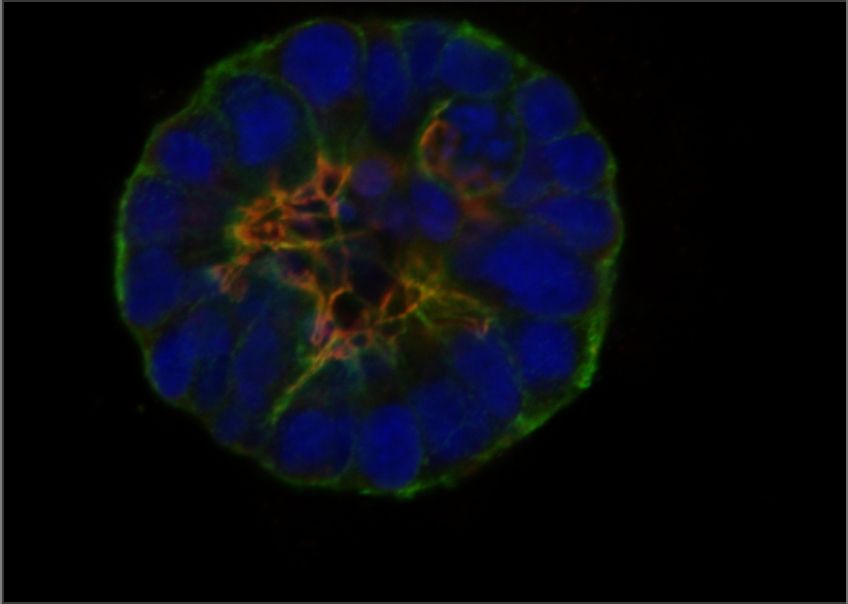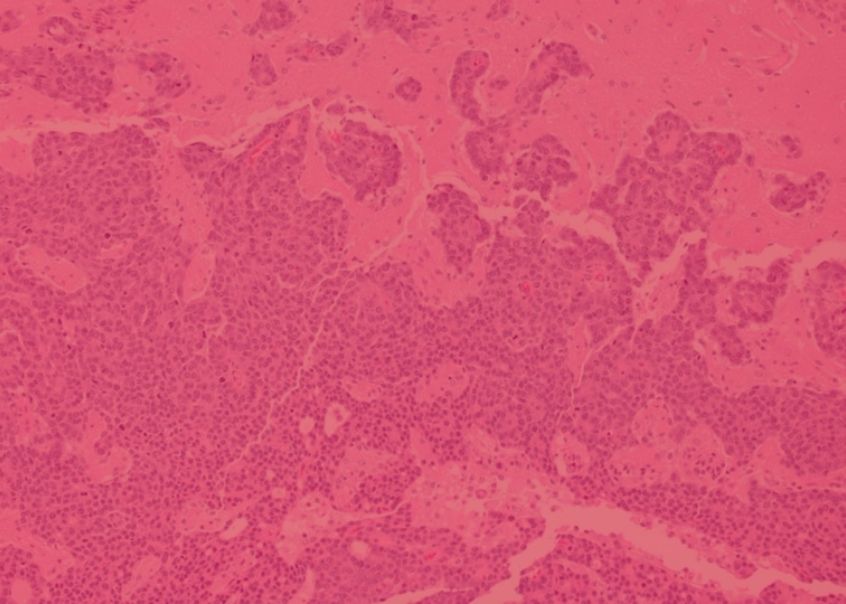
At a glance
Cancer cells dramatically change their metabolism to grow and survive, metastasize (spread) and resist treatment. They alter their production and expenditure of energy and the range of nutrients they ingest from their environment, as well as taking up and releasing metabolites (molecules produced by metabolic pathways) that mediate communication with neighboring cells. Genetic, lifestyle and environmental factors that shape metabolism are also among the most important cancer risk factors. This is illustrated clearly by the escalating crisis of obesity, which increases the risk of cancer initiation and accelerates progression in many cancer types.
The GCI has pioneered the investigation of metabolism as a driver of cancer. Our leadership includes the first pan-Canadian research program in the field, funded by the Terry Fox Research Institute since 2011, and empowered by the Metabolomics Innovation Resource (MIR), the GCI’s world-leading technology platform dedicated to cancer metabolism. The GCI has also developed a major research focus on metabolic risk factors for cancer which are associated with obesity but also affect up to 20% of people who are not overweight. By understanding how metabolism, diet and bodyweight interact to influence cancer progression and response to therapies, including immunotherapies, our researchers are uncovering new biomarkers and treatment strategies and promoting sustainable health for all populations.
Areas of Focus
Metabolic Dependencies are acquired by tumors as they progress, and their nature depends on the genetic and other changes that drive tumour formation, the local microenvironment of the tumour, and environmental factors such as diet and lifestyle. Determining how cancers hijack metabolic pathways to fuel cancer progression will reveal their Achilles’ heels, leading to promising new drug targets and biomarkers. Understanding metabolic plasticity, or how cancer cells adapt their use of metabolic pathways to cope with changing and stressful conditions, holds the key to treating metastatic and drug resistant disease. We create advanced models that preserve the metabolic features of cancer by using genetic engineering and by working directly with living tumour samples obtained directly from patients. Our state-of-the-art technology for analyzing metabolism and “-omics”-based deep characterization of tumour and host cells, including at the single-cell level, unravel the metabolic dependencies and networks of cancer and make them targetable. These studies build on Canada’s first major research program dedicated to cancer metabolism, funded by the Terry Fox Research Institute since 2011 and now additionally supported by the Quebec Breast Cancer Foundation.
Declining Metabolic Health is a leading risk factor that promotes cancer development by changing the molecular and cellular landscape of adipose (fat) tissue and compromising immune system function. While common in overweight/obese individuals, these changes also occur in one in five people of normal weight. We use our advanced technology to unravel the complex relationships between diet, metabolism, and immunity, including by spatially mapping the molecular effects of diet and bodyweight on the metabolism and cellular structure of cancerous tissue. In partnership with our interdisciplinary network of collaborators, we are developing strategies based on diet and modifying the gut microbiome to halt cancer progression and optimize responses to treatment, including immunotherapy.
Understanding and exploiting the biology of adipocytes can reveal unprecedented new strategies to prevent and treat cancer. Adipocytes (fat cells) can supply nutrients and signals that support the development of many tumour types, and changes in their health and behaviour during obesity and other types of metabolic stress can also promote cancer development and progression. However, specialized thermogenic adipocytes use nutrients to generate heat, and their activation has the potential to reverse the detrimental effects of obesity and starve developing cancers of energy. The GCI is home to some of the world’s leading experts in adipocyte biology who develop and apply a wealth of genetic and analytical technology, with links to leading clinical programs in the field, to understand the biology and functions of different types of adipocytes and discover how they can be exploited to benefit cancer patients.
Team members
Major Discoveries
Studies conducted at the GCI have revealed how cancer cells adapt their genetic and metabolic programs during metastasis to specific secondary organs (e.g. lung, liver or bone). This work has identified therapeutic targets unique to each metastatic site that may lead to strategies blocking the ability of cancer cells to colonize these secondary sites.
Dupuy, F. et al. PDK1-Dependent Metabolic Reprogramming Dictates Metastatic Potential in Breast Cancer. Cell Metabolism. 2015 Oct 6;22(4):577-89
Andrzejewski, S. et al. PGC-1α Promotes Breast Cancer Metastasis and Confers Bioenergetic Flexibility against Metabolic Drugs. Cell Metabolism. 2017 Nov 7;26(5):778-787.e5.
Obesity increases the incidence and the aggressiveness of many cancer types. GCI investigators are using cutting-edge single cell and spatial analysis of pre-clinical models and patient samples to understand this phenomenon. Among their discoveries is the key role of neutrophils, a cell type of the innate immune system, in promoting breast cancer metastasis to the lungs during obesity.
McDowell, S.A.C., Neutrophil oxidative stress mediates obesity-associated vascular dysfunction and metastatic transmigration. Nature Cancer. 2021 May;2(5):545-562.
Adipocytes (fat cells) are involved in many aspects of metabolism and cancer. They can either store energy (white adipocytes) or consume nutrients to release energy as heat (brown adipocytes). GCI scientists are among the world leaders in uncovering the mechanisms governing adipocyte biology and function, including key genetic control mechanisms and cellular signaling pathways regulating adipocyte development and bodyweight. We have made vital contributions to knowledge of the molecular mechanisms of heat generation (thermogenesis) in brown adipocytes and how they can be harnessed to combat obesity and cancer progression.
Rahbani JF, et al. ADRA1A-Gαq signalling potentiates adipocyte thermogenesis through CKB and TNAP. Nat Metab. 2022Kazak, L. et al. Ablation of adipocyte creatine transport impairs thermogenesis and causes diet-induced obesity. Nature Metabolism 2019;1(3):360-370.
Kazak, L. et al. Ablation of adipocyte creatine transport impairs thermogenesis and causes diet-induced obesity. Nature Metabolism 2019;1(3):360-370.
Rahbani, J.F., et al. Creatine kinase B controls futile creatine cycling in thermogenic fat. Nature. 2021 Feb;590(7846):480-485.
Luo J, et al. Reduced fat mass in mice lacking orphan nuclear receptor estrogen-related receptor alpha. Mol Cell Biol. 2003 Nov;23(22):7947-56. doi: 10.1128/MCB.23.22.7947-7956.2003. PMID: 14585956
Yan M, et al. Chronic AMPK activation via loss of FLCN induces functional beige adipose tissue through PGC-1α/ERRα. Genes Dev. 2016 May 1;30(9):1034-46. doi: 10.1101/gad.281410.116. PMID: 27151976

.jpg)
.jpg)

.jpg)
